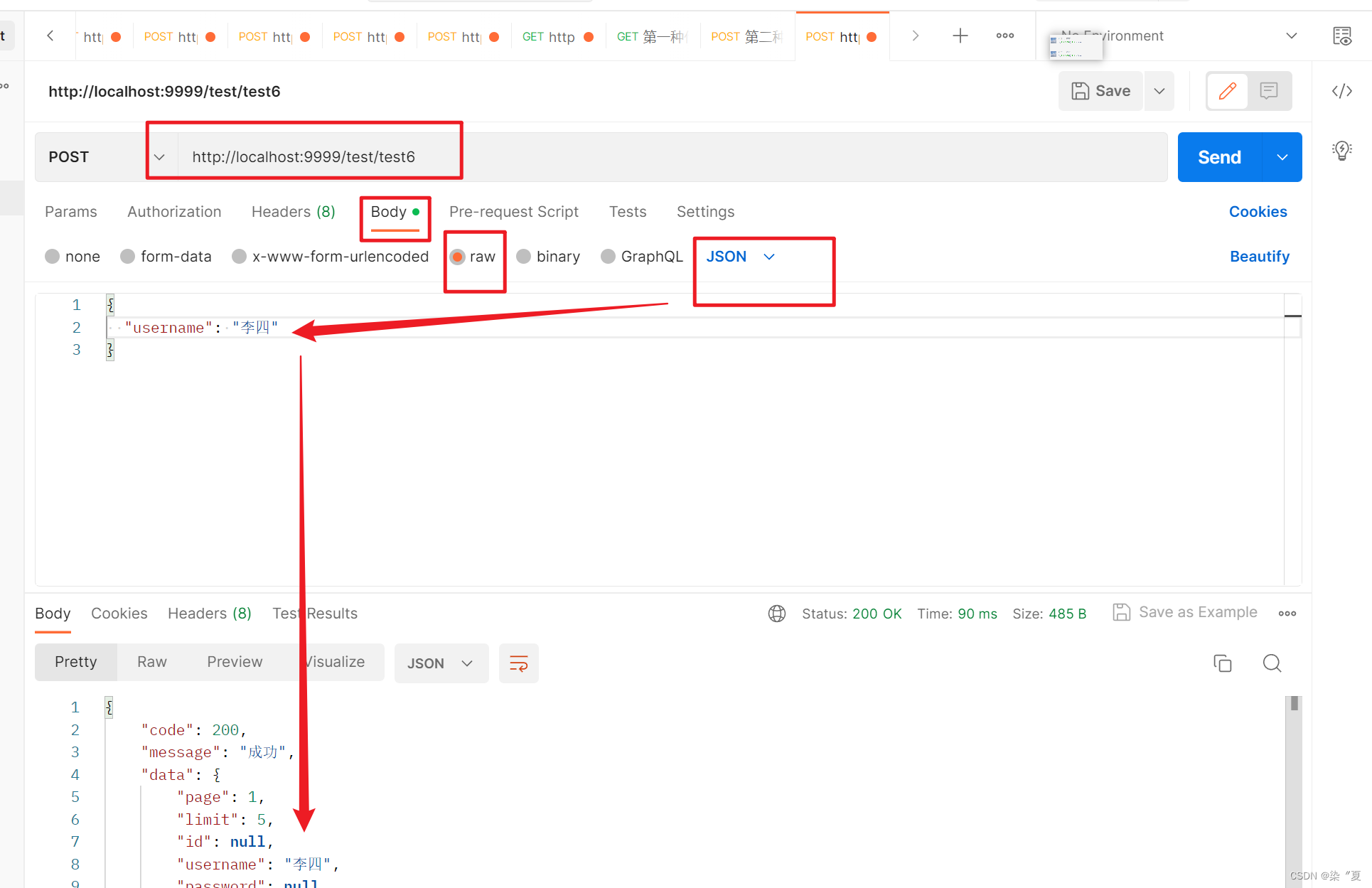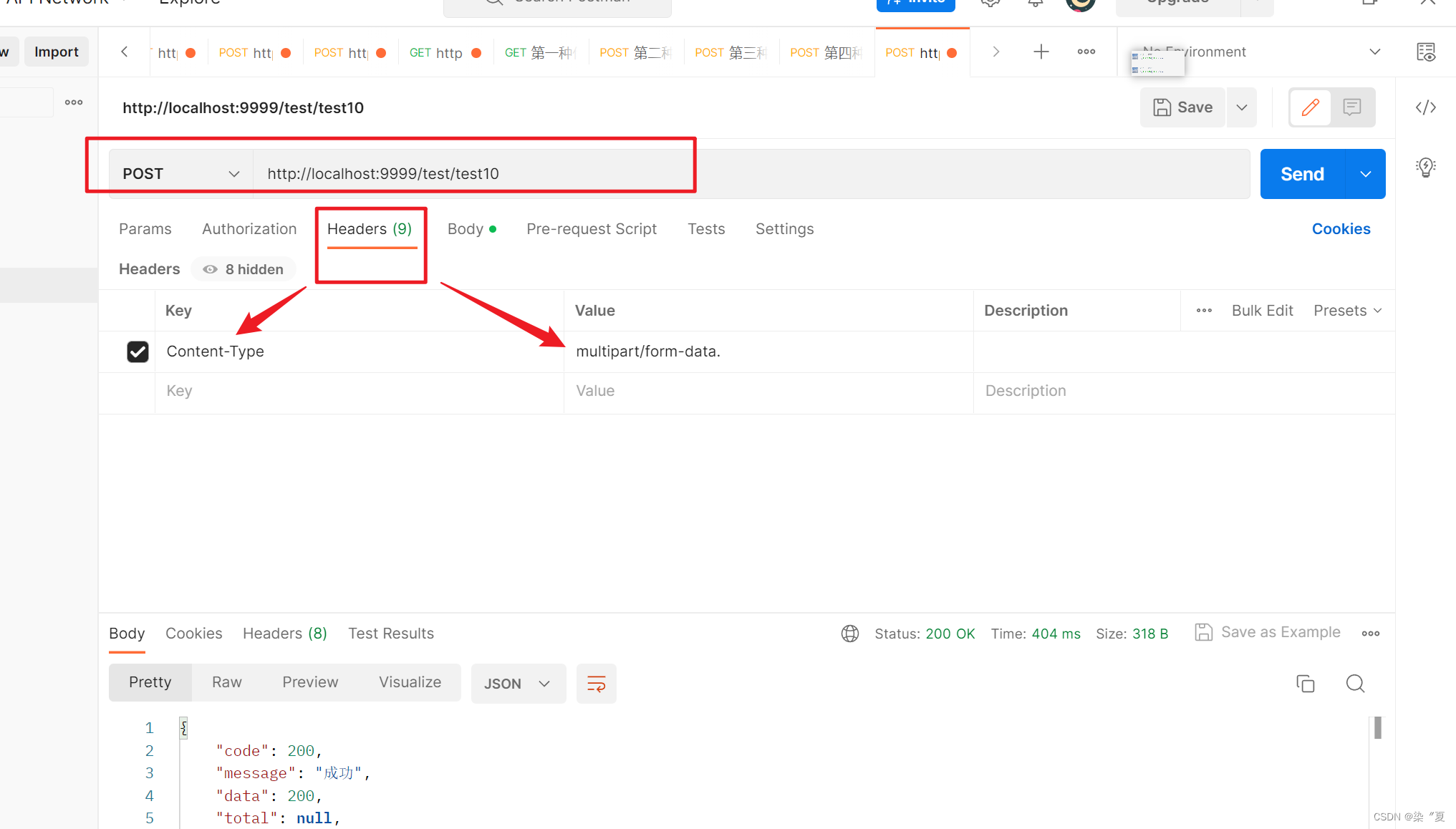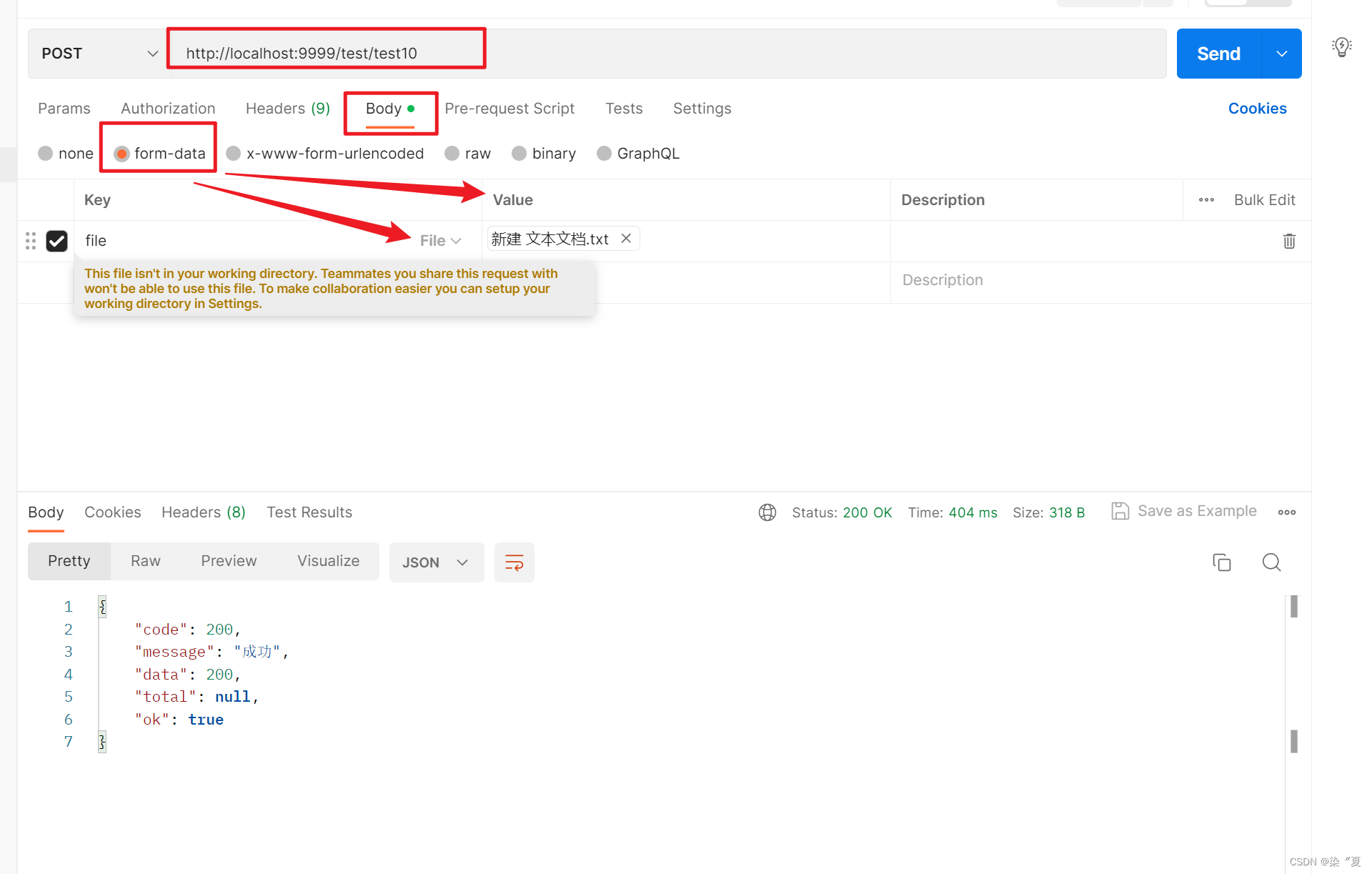一:四种传参方式
SpringBoot 接收参数的常用方式主要有以下几种:
1.1:在 URL 中传递参数
可以通过在 URL 中添加参数来传递数据,例如:**/user?id=123&name=Tom**。在 SpringBoot 中,可以使用 **
@RequestParam** 注解来获取请求参数。

1.2:PathVariable 传递参数(Restful 风格)
PathVariable 可以接受 URL 中的变量值,例如:**/user/123**,其中 123 就是一个变量。在 SpringBoot 中,可以使用 **
@PathVariable**注解来获取 URL 中的变量值。

1.3:在请求体中传递参数
可以将参数放在请求体中传递,例如:POST 请求中的表单数据或 JSON 数据。在 SpringBoot 中,可以使用**@RequestBody**注解来获取请求体中的参数。

1.4:在请求头中传递参数
可以在请求头中添加参数,例如:JWT Token。在 SpringBoot 中,可以使用 **@RequestHeader** 注解来获取请求头中的参数。

二:文件上传接口测试
2.1 : test.java
@PostMapping("/test10")
public Result test10(@RequestParam("file") MultipartFile file) {
return Result.ok(200);
}


三、@RequestParam
3.1 多个参数
@GetMapping("/test3")
public Result test3(@RequestParam("id") Integer id ,
@RequestParam("name") String name){
return Result.ok(name+id);
}
**执行结果: **

3.2 单个参数
@PostMapping("/test4")
public Result test4(@RequestParam("name") String name) {
return Result.ok(name);
}
**执行结果: **

四、@PathVariable
@PathVariable
用于绑定 url 中的占位符。例如:请求 url 中
/delete/{id}
,这个
{id}
就是 url 占位符。url 支持占位符是 spring3.0 之后加入的。是 springmvc 支持 rest 风格 URL 的一个重要标志。
4.1 单个参数
@PostMapping("/test2/{id}")
public Result test2(@PathVariable("id") Integer id) {
return Result.ok(id);
}
4.2 多个参数
@GetMapping("/test1/{id}/{name}")
public Result test1(@PathVariable("id") Integer id,
@PathVariable("name") String name) {
return Result.ok(id+":"+name);
}

五、@RequestBody
@RequestBody一般被用来接收http请求中body中json数据。get、post都可以使用。一般用于post。
5.1 单个参数
注意:不支持 (@RequestBody String name 2,@RequestBody String name2)
@PostMapping("/test5")
public Result test5(@RequestBody String name) {
return Result.ok(name);
}
不同传参得到的结果不同:
" 李四 "

JSON格式:
{
"name": "李四"
}

5.2 User对象
@PostMapping("/test6")
public Result test6(@RequestBody User user) {
return Result.ok(user);
}
** 结果:**

5.3 Map对象
@PostMapping("/test7")
public Result test7(@RequestBody HashMap map) {
return Result.ok(map);
}
**结果: **
5.4 List 集合
@PostMapping("/test8")
public Result test8(@RequestBody List<User> list) {
return Result.ok(list);
}
**结果: **

六:RequestHeader
@RequestHeader主要用来获取请求当中的请求头
代码示例:
@PostMapping("/test9")
public Result test9(@RequestHeader("token") String token ) {
return Result.ok(token);
}
结果:

七、HttpServletRequest
直接拿到request对象,通过request可以从对象中灵活的获取参数:
@RestController
@RequestMapping("/request")
public class HttpServletRequestController {
@GetMapping("/getUrlValue")
public String getUrlValue(HttpServletRequest request) {
// 没有的时候不会报错,直接为null
String msg = request.getParameter("msg");
System.out.println(msg);
return msg;
}
@GetMapping("/getUrlValues")
public String getHttpServletRequestValue(HttpServletRequest request) {
Map<String, String[]> parameterMap = request.getParameterMap();
return JSONObject.toJSONString(request.getParameterMap());;
}
}
版权归原作者 染〞夏 所有, 如有侵权,请联系我们删除。
